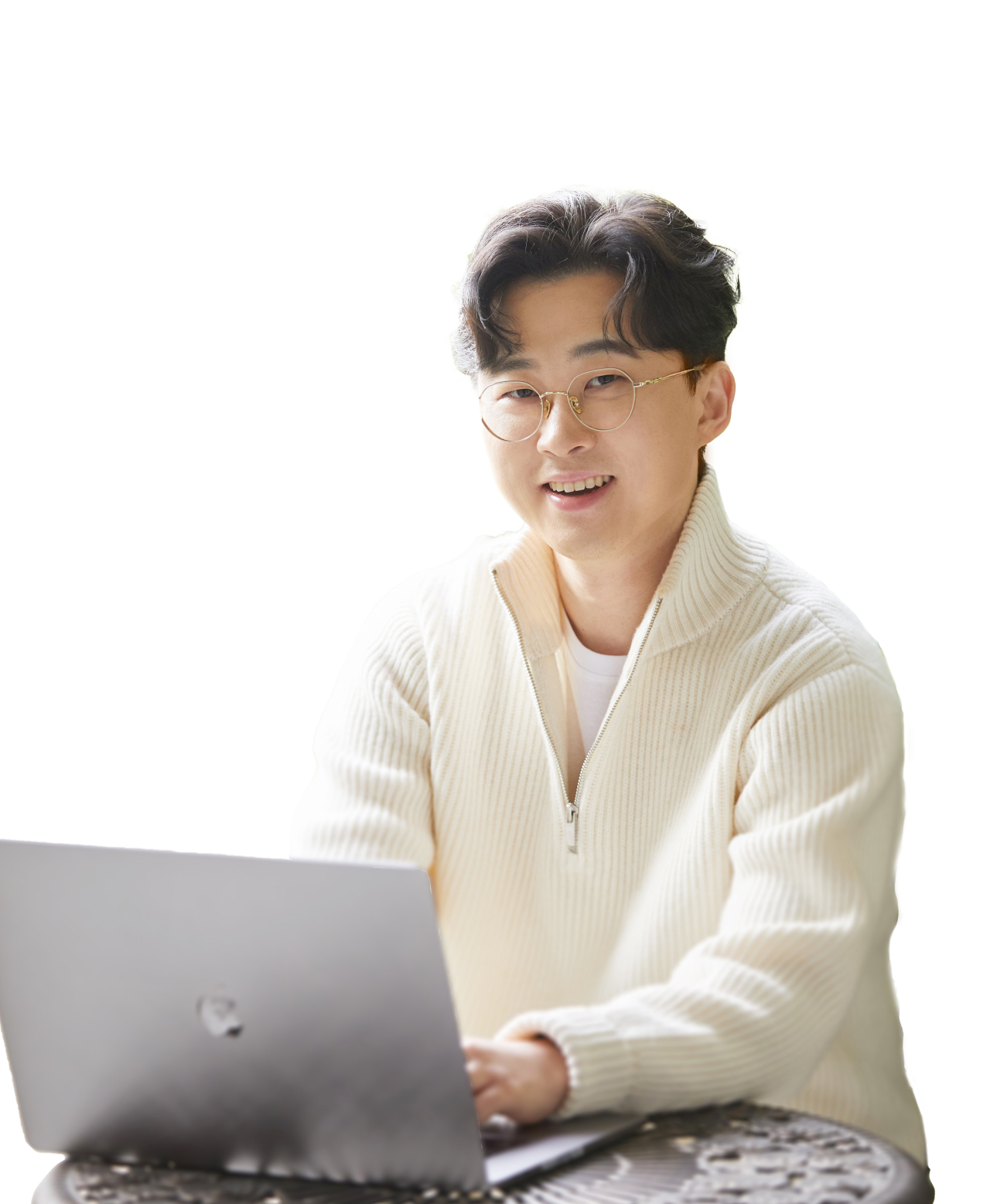Kakao Brain’s AI models ‘more practical’ than Naver, says CEO
Kakao’s AI unit claims that its supergiant AI models are better for carrying out daily tasks than its rival
By Byun Hye-jinPublished : Dec. 20, 2021 - 15:28

Kim Il-du, CEO of Kakao Brain, the artificial intelligence technology research and development subsidiary of Kakao, said Monday its supergiant AI models are more practical than Naver’s, amid growing competition between the two tech giants over leadership in the AI business in Korea.
“Although Kakao Brain’s Korean-language AI model KoGPT contains less parameters than Naver’s, it is just the size to give fast and real-time feedback to the users,” Kim said during an online press conference.
With larger parameters, AI models can indeed have more precise deduction skills and accurate memory, however, their speed to complete tasks could slow down and cost a lot in Research and Development, according to Kim.
“Imagine a Chatbot adopting a gigantic AI model more than it needs. It might take more than 10 seconds for users to get a reply. In that sense, Kakao Brain’s KoGPT is more appropriate in carrying out such tasks. It has even received higher scores than Naver in some of the tests that evaluate the efficiency of AI models,” Kim added.
While Naver only has a language AI model, Kim stressed Kakao Brain offers another image generating multimodal AI model, dubbed “minDALL-E,” that understands 1.4 billion set of images and texts at the same time.
Kim said Kakao Brain plans to launch a new image generating model that uses 10 times more image and text data sets than minDALL-E. Through Next ImageNet Project, the company will make a higher-level AI model that can describe the image with text and vice versa.
Based on the two AI models and AI technology, Kakao Brain aims to become the front-runner in bringing groundbreaking innovation in education and bio health care.
“We’ve noticed that students are tired of cram learning in schools or hagwons. Our company is thinking of ways to help them find joy in studying by using AI models,” Kim said.
By applying large-scale AI technology to the bio health care sector, Kakao Brain attempts to predict the interaction between proteins and analyze the structure of a complex protein in advance.
The company also forged a partnership with Galux, Korea’s bio startup, to provide their AI technology that can drastically shorten the process of developing new drugs.
Citing important issues such as filtering hate speech and preventing leakage of private information in AI business, Kim said Kakao Brain will closely collaborate with platform operators that wish to use the company’s AI models.
“Before the official launch, we mandate them to comply with our inspection process that scrutinizes the product prototypes and beta services to look for any failure to detect hate speech or protect private information,” Kim said.
“Although Kakao Brain’s Korean-language AI model KoGPT contains less parameters than Naver’s, it is just the size to give fast and real-time feedback to the users,” Kim said during an online press conference.
With larger parameters, AI models can indeed have more precise deduction skills and accurate memory, however, their speed to complete tasks could slow down and cost a lot in Research and Development, according to Kim.
“Imagine a Chatbot adopting a gigantic AI model more than it needs. It might take more than 10 seconds for users to get a reply. In that sense, Kakao Brain’s KoGPT is more appropriate in carrying out such tasks. It has even received higher scores than Naver in some of the tests that evaluate the efficiency of AI models,” Kim added.
While Naver only has a language AI model, Kim stressed Kakao Brain offers another image generating multimodal AI model, dubbed “minDALL-E,” that understands 1.4 billion set of images and texts at the same time.
Kim said Kakao Brain plans to launch a new image generating model that uses 10 times more image and text data sets than minDALL-E. Through Next ImageNet Project, the company will make a higher-level AI model that can describe the image with text and vice versa.
Based on the two AI models and AI technology, Kakao Brain aims to become the front-runner in bringing groundbreaking innovation in education and bio health care.
“We’ve noticed that students are tired of cram learning in schools or hagwons. Our company is thinking of ways to help them find joy in studying by using AI models,” Kim said.
By applying large-scale AI technology to the bio health care sector, Kakao Brain attempts to predict the interaction between proteins and analyze the structure of a complex protein in advance.
The company also forged a partnership with Galux, Korea’s bio startup, to provide their AI technology that can drastically shorten the process of developing new drugs.
Citing important issues such as filtering hate speech and preventing leakage of private information in AI business, Kim said Kakao Brain will closely collaborate with platform operators that wish to use the company’s AI models.
“Before the official launch, we mandate them to comply with our inspection process that scrutinizes the product prototypes and beta services to look for any failure to detect hate speech or protect private information,” Kim said.


![[Exclusive] Korean military set to ban iPhones over 'security' concerns](http://res.heraldm.com/phpwas/restmb_idxmake.php?idx=644&simg=/content/image/2024/04/23/20240423050599_0.jpg&u=20240423183955)

![[Graphic News] 77% of young Koreans still financially dependent](http://res.heraldm.com/phpwas/restmb_idxmake.php?idx=644&simg=/content/image/2024/04/22/20240422050762_0.gif&u=)



![[Pressure points] Leggings in public: Fashion statement or social faux pas?](http://res.heraldm.com/phpwas/restmb_idxmake.php?idx=644&simg=/content/image/2024/04/23/20240423050669_0.jpg&u=)










